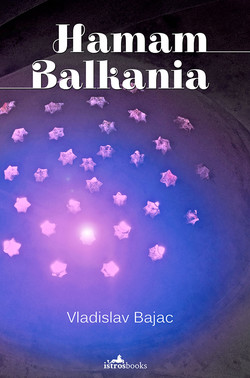Читать книгу Hamam Balkania - Vladislav Bajac - Страница 9
На сайте Литреса книга снята с продажи.
ОглавлениеSince I had inwardly proved to myself that I had not ‘dried up’ as a writer, I could begin in reality to struggle in solving a dilemma. Which of the three planned books should I start to write? I will not mention the other two anticipated books because I have, obviously, started writing the frontrunner. Of course, subtle reasons were in this book’s favour because I had also done most of the serious and necessary preparatory work for the other two future books from the narrow selection.
Of those subtle reasons, the scales were tipped by those that I would group under ‘local-patriotic’ reasons. Namely, in a recent conversation with a colleague on the topics of nationalism and globalism in literary themes, I realised for the first time the fact that the fervent defenders of the ‘domestic novel’ had labelled me ‘cosmopolitan’, a term that they used with condescension. Yet in this conclusion they ignored the fact that in four out of my five published novels, the action at least begins or takes place entirely in Belgrade and/or Serbia, and that of my seven books of prose (not counting this one, of course) six contain the same topography! And yet, the fault-finding had no end: perhaps those books in their essence or message were too cosmopolitan, so even local geography or local action could not help them. They did not manage to rise to the level of national myths, which was, to be honest, not part of their conception either.
The chosen topic hid new traps, not only compositional but also those mentioned earlier – ideological. However, if a writer puts too much stock in all that, he probably would never write anything (worthwhile). Thus, I resolved to write about a Serb who became something else. This ‘something else’ was what interested me. Not really the ‘Serb’ part although, even if I wanted to, I could not separate that from ‘Something Else-ness’. If I were to delve into it really deeply, I would have to admit that I was actually and essentially interested only in the existence of the transition from One into Something Else: the very act in itself.
So, I started researching, investigating, gathering, selecting, accepting and rejecting my materials. Yet, a method had to be chosen for this gathering activity, or at least the order of steps to be taken. Facts as a sort of leitmotif of the process could pop up from anywhere and then be added to the already existing ones. One of my methods was to follow the traces of the protagonists. Thus, over several years (in parallel with other ways of studying this topic) I basically passed through the most important regions where Sokollu Mehmed Pasha had been or had worked: Višegrad with its environs and the wider area of eastern Bosnia and western Serbia (including the Drina River that divides/joins them), Herzegovina and Dubrovnik, Vojvodina and central Hungary, its western part with the centre of the old Austro-Hungarian Empire – Vienna, all of Bulgaria in its breadth, the former capital of the Ottoman Empire – Edirne, and then to the heart – both ancient and modern – Byzantium/Constantinople/Stambol/Istanbul, and all the seas in the area (the Adriatic, the Black Sea, the Sea of Marmara, the Aegean Sea). I finished my search in south-western Turkey and, at the very end, in the Princes’ Islands. I covered it all several times. Persia was the only part to remain outside of my reach, as I was hindered by the wars in the Turkish surroundings – today non-existent Persia. Before that, the wars around Serbia, in today’s non-existent Yugoslavia, hindered me from seeing things in my own backyard. (Belgrade, which was so vital to me, was presupposed also as a toponym. In any case, the whole thing started there and, in principle, soon everything will end there as well.)
In parallel, I also visited the architectural wonders of Mimar Koca Sinan, a contemporary of Mehmed Pasha and the second character in the forthcoming book. I also visited a man named Orhan Pamuk, and a certain V.B. These two latter became the second couple of the parallel action of the planned novel.
These four people became characters in the same book (placed, in fact, on opposing pages), which recruited all of them in a conspiracy against history as I knew it.
